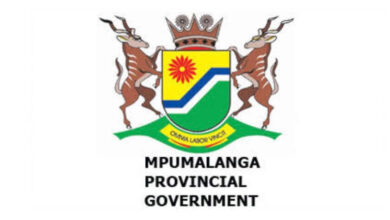20 Unwritten Rules About Freelancing

Freelancing can be an empowering career path that offers freedom, flexibility, and the potential for fulfilling work. However, the freelancing world comes with its own set of unspoken rules that are crucial for navigating the industry successfully. Whether you’re a seasoned freelancer or new to this field, understanding these unwritten rules can make a significant difference in your career. Here are 20 key guidelines every freelancer should keep in mind:
1. Value Your Time
Your time is your most valuable asset. Learn to assess your workload realistically and charge clients accordingly. Underestimating the value of your time can lead to burnout and underpayment.
2. Always Have a Contract
Even when working with friends or long-term clients, always have a written agreement. A contract protects both parties and sets clear expectations for payment terms, deliverables, and deadlines.
3. Set Boundaries
Establishing boundaries is crucial for work-life balance. Clearly communicate your working hours and response times to clients so they know when you’re available and when you’re off the clock.
4. Stay Professional, Always
No matter how casual a client’s communication style may be, maintaining a professional tone will set the stage for mutual respect and serious business dealings.
5. Keep Learning
The freelance market is always evolving, so it’s important to stay updated on industry trends, new technologies, and tools relevant to your field. Continuous learning keeps you competitive and adaptable.
6. Build a Diverse Portfolio
Diversify your work portfolio to showcase a variety of skills. A broad portfolio can open more opportunities and help you appeal to a wider range of clients.
7. Communicate Clearly
Be transparent about timelines, project scopes, and your availability. If an unexpected delay arises, notify your client as soon as possible. Good communication helps build trust and avoids unnecessary misunderstandings.
8. Avoid Scope Creep
Scope creep, when a project expands beyond its initial requirements without additional compensation, can erode your profitability. Learn to politely push back and charge for additional work beyond the original agreement.
9. Network Actively
Freelancing doesn’t mean working in isolation. Building a network of peers, mentors, and clients can lead to valuable collaborations and referrals that fuel your career growth.
10. Invest in Quality Tools
Using subpar software or outdated tools can compromise your work quality and efficiency. Invest in high-quality tools that enhance your workflow and ensure a professional output.
11. Set Aside Money for Taxes
Freelancers are responsible for managing their own taxes, so set aside a portion of your income regularly. This prevents a financial scramble when tax season rolls around.
12. Keep Client Details Confidential
Respecting client confidentiality is an unspoken rule that should never be broken. Sharing sensitive information can damage your reputation and lead to lost business opportunities.
13. Have an Emergency Fund
Freelancing income can be unpredictable. Build an emergency fund to cover living expenses for a few months in case of a dry spell or unforeseen circumstances.
14. Don’t Be Afraid to Say No
Accepting every project can lead to overwhelming workloads and subpar results. Saying no allows you to focus on quality work that aligns with your skills and interests.
15. Guard Against Burnout
The temptation to work around the clock is strong, especially when freelancing from home. Schedule regular breaks, take days off, and practice self-care to prevent burnout.
16. Manage Client Expectations
Avoid overpromising to secure a job. It’s better to under-promise and over-deliver. This approach builds trust and leads to satisfied clients who are more likely to return.
17. Maintain Your Online Presence
Having an updated online portfolio or LinkedIn profile helps potential clients find and assess your skills. Regularly update your work samples and keep your profile professional.
18. Be Prepared for Feedback
Constructive criticism is part of the freelancing world. Don’t take it personally—use it as an opportunity to learn and improve. A professional response to feedback can turn a potential issue into a client-strengthening moment.
19. Be Cautious of Non-Paying Clients
Research potential clients before signing on to avoid scams and non-payment issues. Platforms with escrow payment systems can provide more security, especially for new clients.
20. Stay Patient and Persistent
Building a successful freelancing career takes time. Work may come slowly at first, but with patience, persistence, and consistent effort, you’ll develop a stable client base and steady income.
Freelancing comes with its unique set of challenges and rewards. While these unwritten rules may not be explicitly stated in any freelancing guide, they can shape your career in meaningful ways. By adopting these practices, you can navigate the world of freelancing more effectively, maintain professional relationships, and find long-term success.




